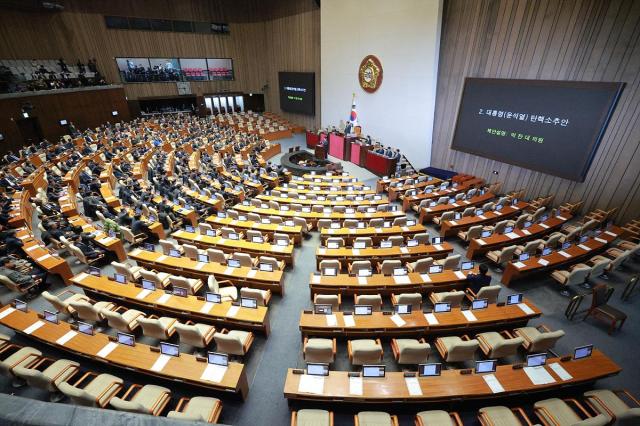
SEOUL, December 07 (AJP) - The National Assembly’s attempt to impeach President Yoon Suk Yeol over his botched martial law ended in a failure on Saturday, with the motion failing to secure the minimum 200 votes required.
Only 195 lawmakers participated in the session, falling short of the two-thirds quorum needed for the impeachment vote to take effect. National Assembly Speaker Woo Won-sik declared the vote invalid.
All but three ruling People Power Party (PPP) lawmakers boycotted the session. The impeachment effort had been spearheaded by the Democratic (DP), which accused President Yoon of undermining democratic principles through his declaration of emergency martial law on December 3.
Outside the National Assembly, over 100,000 people, according to police estimates, gathered in cold, windy weather to demand the president’s removal. The mood among the participants turned tense as the vote fell apart, with many blaming the ruling party’s refusal to participate.
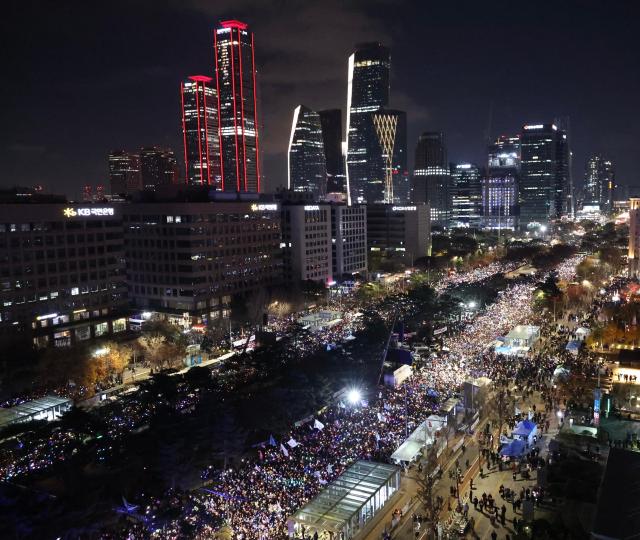
Despite the boycott, three PPP lawmakers broke ranks to cast their votes. Ahn Cheol-soo remained in his seat and later entered the poll booth, while Kim Yea-ji returned to the chamber to vote.
Kim Sang-wook, who arrived later, appeared visibly fatigued and confirmed during a press briefing that he voted against impeachment in line with the party's stance. However, Kim emphasized that his vote did not condone President Yoon’s actions, saying, “I am a conservative, and I believe in protecting South Korea’s constitutional order.”
DP Floor Leader Park Chan-dae vowed to continue efforts to impeach the president, announcing plans to push for impeachment and a special investigation into the president’s actions “step by step, every Saturday.”
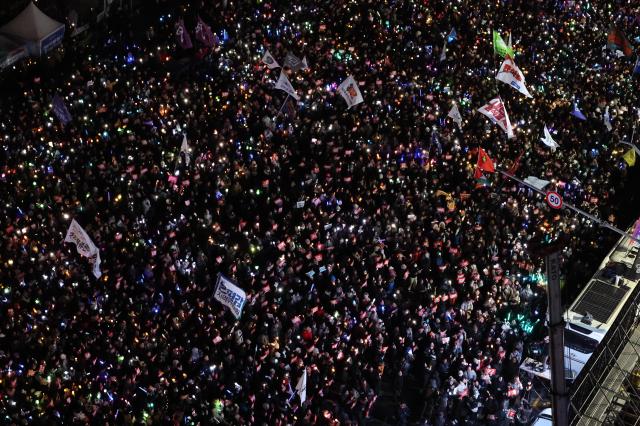
Park also declared that if impeachment motions are defeated, the DP will convene extraordinary sessions to reintroduce them. “We will pursue impeachment repeatedly until it passes,” DP leader Lee Jae-myung said, accusing the PPP of acting as “accomplices to treasonous crimes.”
The PPP issued a statement following the scrapped vote, acknowledging its responsibility for the martial law declaration and calling for legal measures to address the situation.
The ruling party pledged to minimize political turmoil through “a national reconciliation plan” while opposing impeachment, emphasizing the need for a more “orderly and responsible” approach to resolving the crisis.
The impeachment motion was triggered by President Yoon’s emergency martial law declaration, which sent armed forces into the National Assembly building to prevent lawmakers from countering the measure. Martial law forces clashed with parliamentary staff and citizens before withdrawing hours later following a resolution demanding the lifting of martial law.
President Yoon defended the declaration as necessary to "eradicate pro-North Korean forces and their anti-government activities" to protect South Korea’s constitutional order. However, opposition lawmakers and civil society criticized the move as an attack on democracy, accusing Yoon of escalating political tensions and abusing presidential power.
While President Yoon retains his position, the failed impeachment vote has left South Korea politically divided. The opposition continues to push for accountability, while the PPP faces mounting pressure to address public outrage and restore political stability. As the DPK prepares to reintroduce impeachment efforts, South Korea’s political uncertainty shows no signs of abating.
Copyright ⓒ Aju Press All rights reserved.


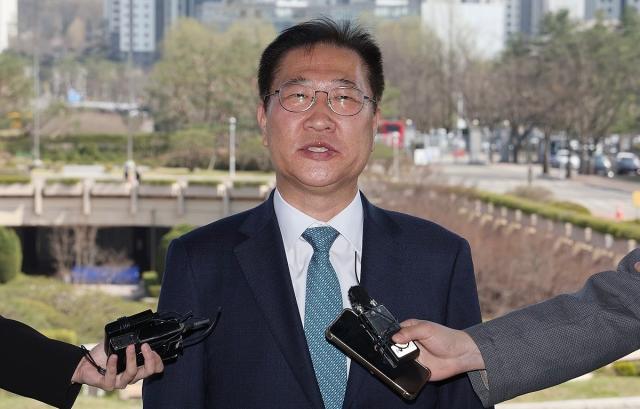
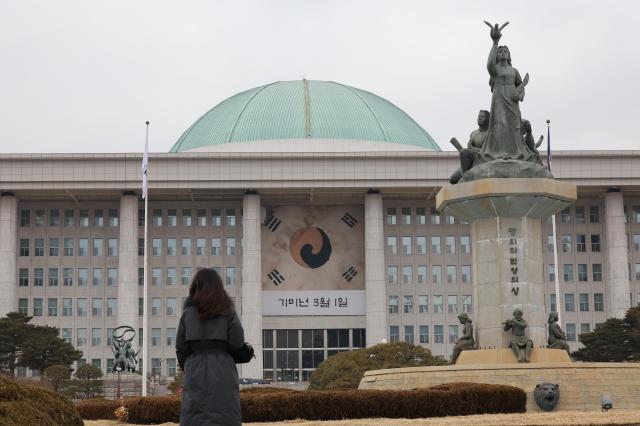
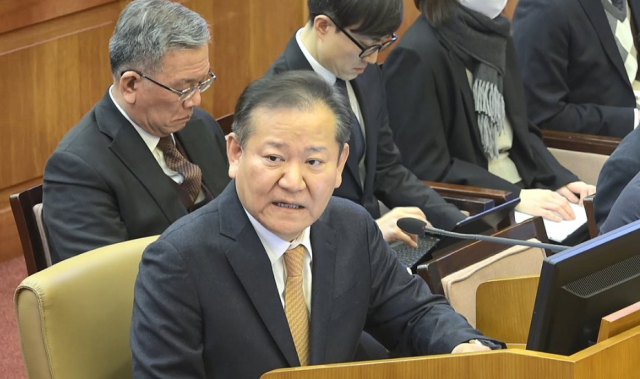
View more comments